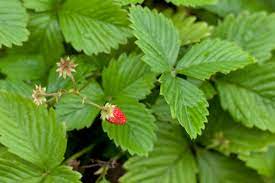Botanical Description:
Scientific Name: Ganoderma lucidum
Common Names: Reishi Mushroom, Lingzhi
Description:
Reishi, scientifically known as Ganoderma lucidum, is a woody fungus revered for its medicinal properties in traditional Chinese medicine. Recognized for its unique appearance and extensive use in herbal remedies, Reishi has gained attention for its potential therapeutic benefits. Explore the traditional uses, constituents, and applications of Reishi in this Materia Medica.
Disclaimer:
This Materia Medica is provided for informational purposes only and should not replace professional medical advice. Please consult with a qualified healthcare practitioner or herbalist before using any herbal remedies.
Therapeutic Actions:
- Adaptogenic Properties:
- Reishi is considered an adaptogen, helping the body adapt to stress and restore balance.
- Immune System Modulation:
- It modulates the immune system, enhancing its activity to better defend against infections and diseases.
- Anti-Inflammatory:
- Reishi exhibits anti-inflammatory effects, contributing to its role in addressing inflammatory conditions.
- Antioxidant:
- It has antioxidant properties, helping to neutralize free radicals and protect cells from damage.
Constituents:
- Polysaccharides:
- Reishi contains polysaccharides, which contribute to its immune-modulating effects.
- Triterpenes:
- Triterpenes in Reishi have antioxidant and anti-inflammatory properties.
- Ganoderic Acids:
- Ganoderic acids are unique compounds in Reishi that may have various therapeutic benefits.
Traditional Uses:
- Stress Adaptation:
- Reishi is traditionally used to help the body adapt to stress, promoting a sense of calm and balance.
- Immune Support:
- Its immune-modulating properties make Reishi valuable in supporting overall immune health.
- Inflammatory Conditions:
- Reishi is employed to address conditions characterized by inflammation, such as arthritis.
- Longevity and Vitality:
- In traditional Chinese medicine, Reishi is associated with longevity and vitality, promoting overall well-being.
Dosage and Preparation:
- Reishi Extract:
- Standardized Reishi extracts are available in various forms, including capsules or liquid extracts. Dosages vary, and it’s essential to follow recommended guidelines.
- Reishi Tea:
- Reishi can be prepared as a tea or decoction. Dosage should be in accordance with recommended guidelines.
Cautions and Considerations:
- Pregnancy and Breastfeeding:
- Safety during pregnancy and breastfeeding is not well-established, and consultation with a healthcare professional is recommended.
- Blood-Thinning Effects:
- Reishi may have mild blood-thinning effects, and caution is advised for individuals taking anticoagulant medications.
- Allergies:
- Individuals with known allergies to mushrooms should exercise caution.
Conclusion:
Reishi, with its unique appearance and rich history in traditional Chinese medicine, is valued for its potential benefits on stress adaptation, immune modulation, and overall vitality. Whether used to support the body during times of stress, enhance immune function, address inflammatory conditions, or promote longevity, Reishi offers versatile applications. Whether taken as an extract or consumed as a tea, Reishi provides natural options for those seeking herbal remedies. This Exhaustive Materia Medica aims to provide comprehensive insights into Reishi’s botanical description, therapeutic actions, constituents, traditional uses, dosage, precautions, and applications. For personalized guidance, consultation with healthcare professionals or herbalists is recommended to ensure safe and effective utilization of Reishi as a herbal remedy.





